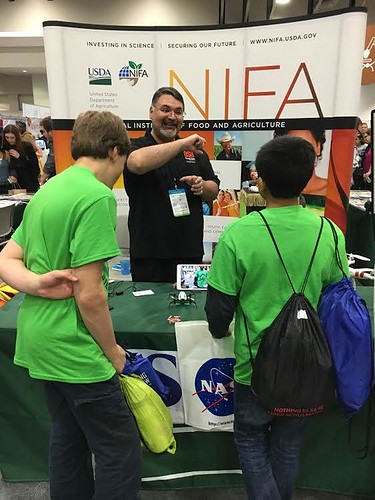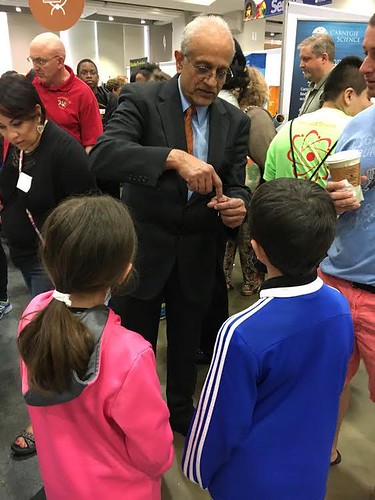
The link between agriculture, science, and engineering is quite simple. Whether you live in a rural or urban setting, those three components work together to make a more sustainable environment. Thousands of students had the chance to learn about that and more, April 15-17 at the 4th Annual Science and Engineering Festival in Washington, DC.
Several members of the USDA’s National Institute of Food and Agriculture (NIFA) participated in the festival to encourage children to become the next generation of agricultural professionals.
The event brought together the very best in science and technology together under one roof. The plethora of exhibits, stage presentations, and performances all communicated the importance of science. Performers included Oregon State University Extension Coordinator Victor Villegas, aka the “The Drone Singer,” who performed a drone-themed song as a drone flew around the conference venue.
Among the highlights at the festival included some of USDA’s staff participating in the “Meet the Scientists and Engineers Program.” It was a chance for students to ask questions on all things agriculture. NIFA Director Dr. Sonny Ramaswamy, who is an entomologist, piqued the curiosity of many students when he explained the many benefits of eating insects, which pack great nutritional value and lower in fat versus the meat we consume on a daily basis. According to the U.N. Food and Agriculture Organization, more than two billion people around the world routinely consume the some of the earth’s 1,900 edible insect species.
“Insects have served as a human food source for tens of thousands of years and may be part of our toolkit in the future in helping solve global food security challenges,” Ramaswamy said. “There are many advantages to having insects as food. Insects contain more protein and are lower in fat than traditional meats, and contain a number of micronutrients critical for human well-being.”

